Learn about our comprehensive antibody validation methods to ensure monospecificity. Antibody Validation>>
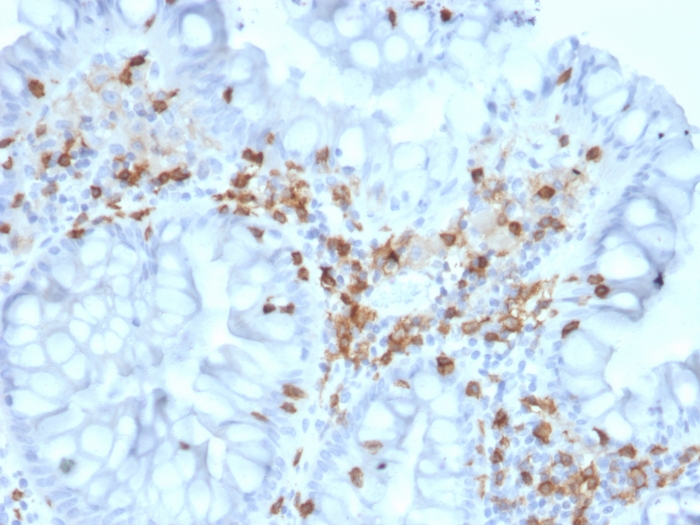
Formalin-fixed, paraffin-embedded human Colon stained with CD103 Mouse Monoclonal Antibody (ITGAE/2063).
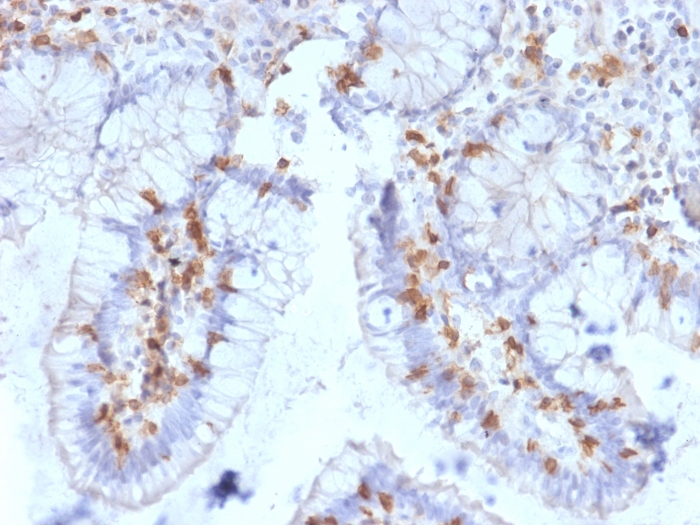
Formalin-fixed, paraffin-embedded human Small Intestine stained with CD103 Mouse Monoclonal Antibody (ITGAE/2063).
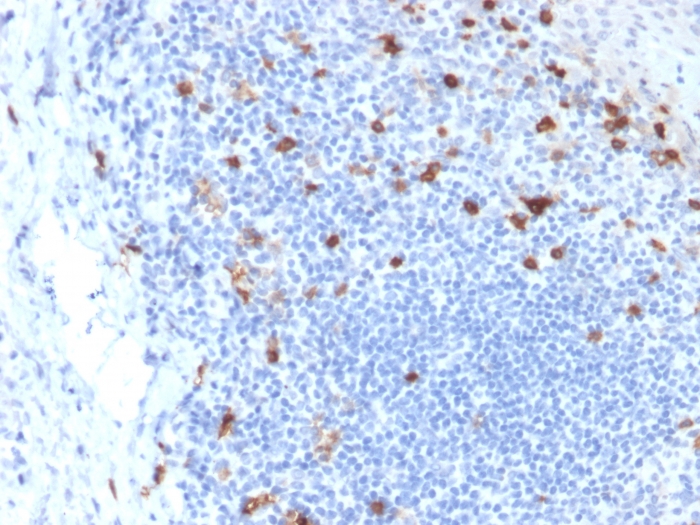
Formalin-fixed, paraffin-embedded human Tonsil stained with CD103 Mouse Monoclonal Antibody (ITGAE/2063).
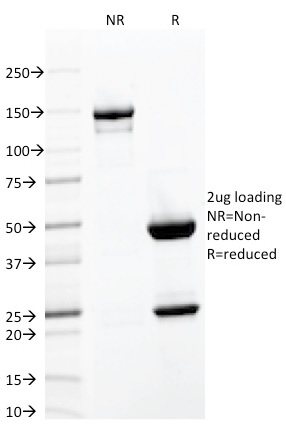
SDS-PAGE Analysis Purified CD103 Mouse Monoclonal Antibody (ITGAE/2063). Confirmation of Purity and Integrity of Antibody.
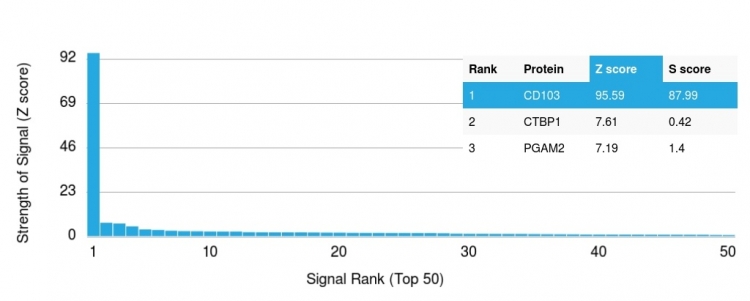
Analysis of Protein Array containing more than 19,000 full-length human proteins using CD103 Mouse Monoclonal Antibody (ITGAE/2063). Z- and S- Score: The Z-score represents the strength of a signal that a monoclonal antibody (MAb) (in combination with a fluorescently-tagged anti-IgG secondary antibody) produces when binding to a particular protein on the HuProtTM array. Z-scores are described in units of standard deviations (SD's) above the mean value of all signals generated on that array. If targets on HuProtTM are arranged in descending order of the Z-score, the S-score is the difference (also in units of SD's) between the Z-score. S-score therefore represents the relative target specificity of a MAb to its intended target. A MAb is considered to specific to its intended target, if the MAb has an S-score of at least 2.5. For example, if a MAb binds to protein X with a Z-score of 43 and to protein Y with a Z-score of 14, then the S-score for the binding of that MAb to protein X is equal to 29.
This MAb recognizes a protein of 150kDa, identified as CD103, which is the alpha-E integrin subunit of the heterodimeric alpha-E beta-7 (aEb7) integrin belonging to a small beta-7 integrin subfamily. CD103 is expressed on more than 95% of intraepithelial CD8+ cells and on 40% of mucosa-associated T cells, whereas less than 2% of resting blood lymphocytes are CD103-positive. In several malignant conditions, such as T-cell lymphomas and hairy cell leukemia (HCL), the cells express CD103. Antibody to CD103 is an extremely useful addition to the IHC panel for the diagnosis of hairy cell leukemia (HCL).
There are no reviews yet.